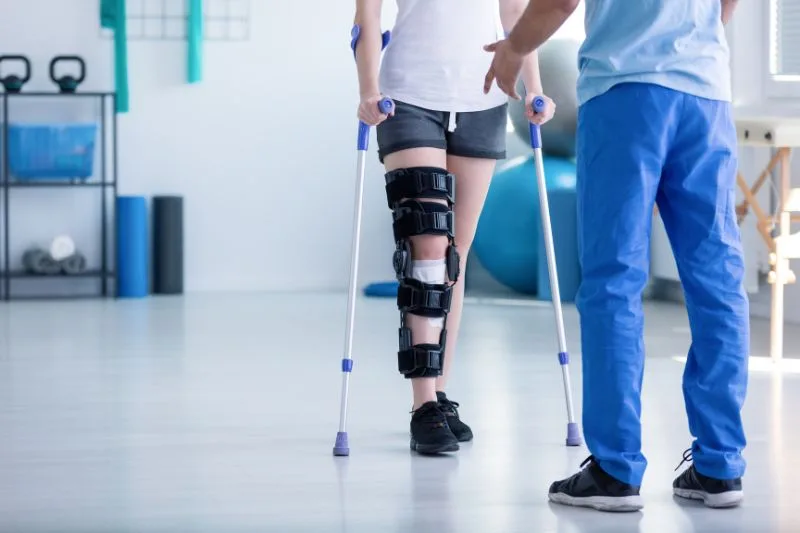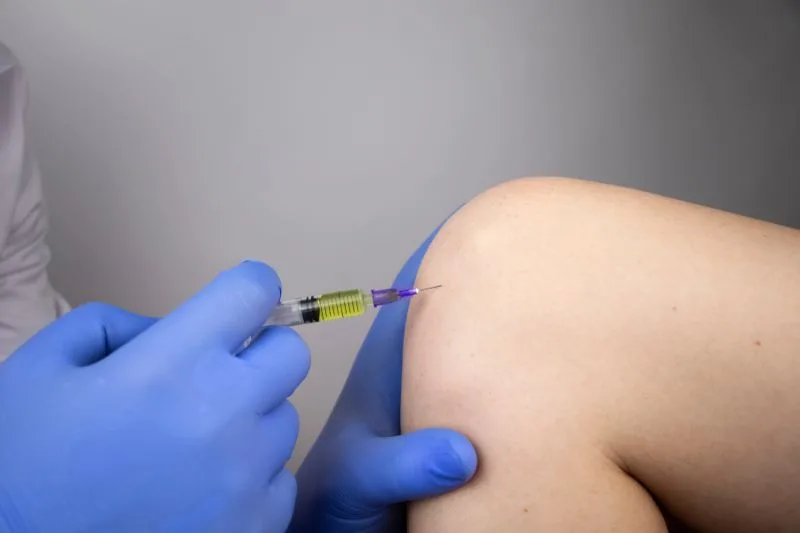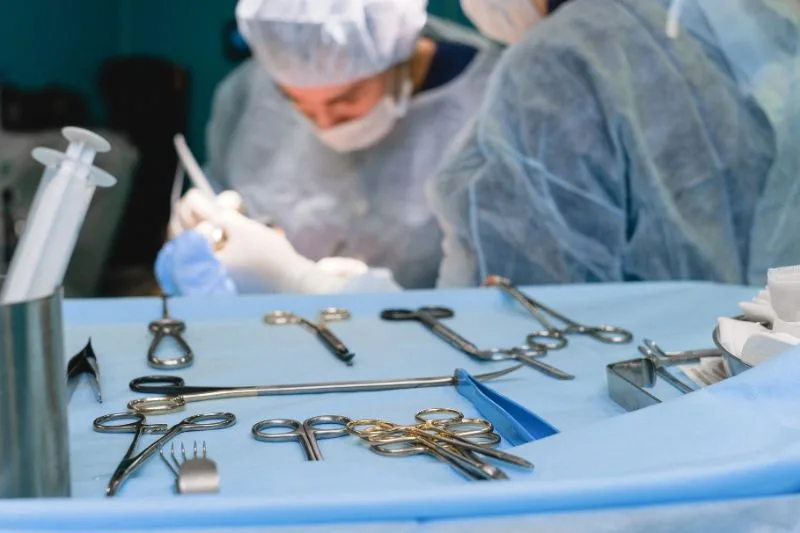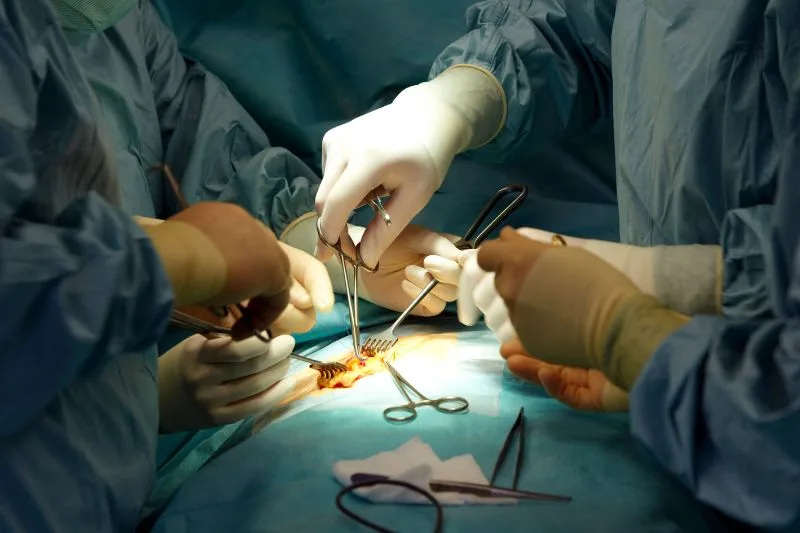
Ortho surgery in Nagpur is a field of medicine that focuses on the musculoskeletal system. This includes the bones, joints, muscles, ligaments, tendons, and nerves that allow us to move and function properly. In Nagpur, a city located in the heart of India, ortho surgery has seen significant growth and development over the years. People from the region and nearby areas seek orthosurgery in Nagpur for various reasons, ranging from injury recovery to long-term chronic conditions. In this article, we’ll provide a comprehensive guide to ortho surgery in Nagpur, covering common conditions treated, available treatments, and what to expect during your visit.
Table of Contents

Ortho Surgery in Nagpur: Common Conditions Treated
One of the key reasons individuals seek ortho surgery in Nagpur is to address a variety of common conditions affecting the musculoskeletal system. These include:
- Fractures and Dislocations: Fractures and dislocations often require immediate attention and are common reasons for seeking ortho surgery in Nagpur. Fractures may involve a bone breaking due to injury, while dislocations occur when a joint is forced out of its normal position.
- Arthritis: Arthritis is a common condition that affects the joints and can cause pain and stiffness. There are various types of arthritis, such as osteoarthritis and rheumatoid arthritis, that can benefit from ortho surgery in Nagpur.
- Sports Injuries: Athletes often experience injuries such as ligament tears, sprains, and strains. Ortho surgery in Nagpur can help address these injuries, enabling athletes to return to their sports.
- Spinal Disorders: Spinal issues such as herniated discs, spinal stenosis, and scoliosis are treated through ortho surgery in Nagpur. These conditions can cause back pain, leg pain, and other mobility issues.
- Joint Replacement: Ortho surgery in Nagpur is known for offering joint replacement surgeries, such as hip, knee, and shoulder replacements. These procedures can improve mobility and quality of life for patients with damaged joints.
Ortho Surgery in Nagpur: Available Treatments
There are various treatments available for those seeking ortho surgery in Nagpur. These treatments vary depending on the specific condition and its severity. Some of the common treatments include:
- Non-Surgical Treatments: Before considering surgery, doctors may recommend non-surgical treatments such as physical therapy, medication, and lifestyle changes. These treatments can help alleviate pain and improve mobility without surgery.
- Arthroscopic Surgery: Arthroscopy is a minimally invasive surgical technique used in orthosurgery in Nagpur. It involves using a small camera to visualize the inside of a joint and perform repairs with minimal incisions.
- Joint Replacement: Joint replacement surgeries, such as knee or hip replacements, involve removing damaged or worn-out joints and replacing them with artificial components. These surgeries are common in orthosurgery in Nagpur and can greatly improve patients’ quality of life.
- Spinal Surgery: Spinal surgeries can address various conditions affecting the spine, such as herniated discs or spinal stenosis. Procedures like laminectomy and discectomy are performed in orthosurgery in Nagpur to relieve pain and improve function.
- Fracture Repair: Fracture repair involves realigning broken bones and securing them in place using pins, plates, or screws. Orthosurgery in Nagpur is known for offering advanced techniques in fracture repair.
Ortho Surgery in Nagpur: What to Expect During Your Visit
If you’re considering ortho surgery in Nagpur, it’s essential to know what to expect during your visit. Here is a general overview:
- Consultation: Your first visit will typically involve a consultation with an orthopedic surgeon. During this appointment, you can discuss your symptoms, medical history, and any previous treatments you have tried.
- Diagnosis: The orthopedic surgeon may perform physical examinations and order imaging tests such as X-rays, MRIs, or CT scans to diagnose your condition accurately.
- Treatment Plan: Based on the diagnosis, the surgeon will create a treatment plan tailored to your specific needs. This plan may include non-surgical treatments or recommendations for surgery.
- Preoperative Preparation: If surgery is recommended, you’ll receive instructions on how to prepare for the procedure. This may involve fasting, stopping certain medications, and arranging for transportation.
- Surgery Day: On the day of surgery, you’ll arrive at the hospital or clinic and undergo the procedure. The length and type of surgery will depend on your condition and treatment plan.
- Recovery and Rehabilitation: After surgery, you’ll receive instructions for your recovery and rehabilitation process.
Ortho Surgery in Nagpur: Importance of Choosing the Right Surgeon
When considering ortho surgery in Nagpur, it’s crucial to choose the right orthopedic surgeon for your needs. Look for a surgeon who is board-certified and has experience in treating your specific condition. You can also ask for referrals from your primary care doctor or seek recommendations from friends or family.

Ortho Surgery in Nagpur: Staying Informed
Staying informed about ortho surgery in Nagpur and your specific condition can help you make the best decisions for your health. Research your condition and treatment options, ask questions during your consultations, and follow your surgeon’s instructions for the best outcomes.
When seeking orthopedic care in Nagpur, you might have many questions about the treatments available and what to expect during your visit. In this continuation, we’ll discuss more about different aspects of orthopedic care and surgery, from specific treatments to recovery and follow-up care, as well as tips for choosing the right surgeon.
Orthopedic Surgery and Treatments
Orthopedic surgery covers a wide range of conditions affecting the musculoskeletal system. Here are some additional treatments available in Nagpur:
- Bone Fracture Management: Treating bone fractures involves stabilizing the broken bones and realigning them for proper healing. Depending on the severity and location of the fracture, this can involve casting, splinting, or surgical intervention such as the use of rods, pins, or plates.
- Ligament and Tendon Repair: Injuries to ligaments and tendons often require surgical repair to restore function and prevent further damage. Common procedures include anterior cruciate ligament (ACL) repair in the knee or rotator cuff repair in the shoulder.
- Bone Deformity Correction: Orthopedic surgeons may perform procedures to correct bone deformities caused by congenital conditions or injuries. These can include osteotomies (cutting and realigning bones) or other corrective surgeries.
- Arthroscopic Surgery for Various Joints: Arthroscopy is a minimally invasive procedure that uses a small camera to examine and treat issues within joints. It can be performed on knees, shoulders, hips, and other joints, and is known for shorter recovery times and less scarring.
- Pediatric Orthopedics: Children may need specialized orthopedic care for conditions such as scoliosis, clubfoot, or growth plate injuries. Surgeons trained in pediatric orthopedics have experience in treating these conditions in growing children.
Recovery and Rehabilitation
Post-surgery recovery and rehabilitation are crucial for achieving the best outcomes. Here’s what you can expect:
- Physical Therapy: Physical therapy is often recommended as part of your recovery plan. It helps strengthen muscles, improve mobility, and speed up the healing process.
- Pain Management: Managing pain after surgery is an essential part of recovery. Your surgeon will provide guidance on medications and other methods to keep pain under control.
- Follow-Up Appointments: Regular follow-up appointments with your surgeon allow them to monitor your progress and address any concerns you may have.
- Lifestyle Adjustments: Depending on the surgery and condition, you may need to make certain lifestyle adjustments during recovery, such as avoiding strenuous activities or using assistive devices.
Choosing the Right Surgeon
When choosing an orthopedic surgeon, it’s important to find someone who is experienced and knowledgeable in treating your specific condition. Here are some factors to consider:
- Qualifications and Experience: Look for a surgeon who is board-certified and has extensive experience in the type of surgery you need.
- Patient Reviews and Testimonials: Reading patient reviews and testimonials can give you insight into the surgeon’s skills and bedside manner.
- Communication and Comfort: Choose a surgeon who listens to your concerns and explains your treatment options in a clear and understandable manner.
- Availability and Accessibility: Consider the surgeon’s availability for appointments and follow-up care, as well as the location of their practice.

Advancements in Orthopedic Surgery
Orthopedic surgery has seen many advancements in recent years. Some of these include:
- Robotic-Assisted Surgery: Robotic technology is being used to improve precision in surgeries such as joint replacements. This can lead to better outcomes and faster recovery times.
- 3D Printing: 3D printing is revolutionizing the creation of custom implants and prosthetics, allowing for better fit and function.
- Biologics: The use of biologics, such as platelet-rich plasma (PRP) and stem cells, is gaining popularity in orthopedic treatments to promote healing and tissue regeneration.
Preventive Care and Maintenance
Preventive care is key to maintaining good musculoskeletal health and avoiding the need for surgery. Here are:
- Regular Exercise: Staying active with low-impact exercises such as walking, swimming, or cycling helps strengthen muscles and maintain joint health.
- Healthy Diet: Consuming a balanced diet rich in calcium and vitamin D is essential for strong bones.
- Weight Management: Maintaining a healthy weight reduces stress on joints, particularly in the knees and hips.
- Injury Prevention: Practicing proper form during sports and using protective gear can help prevent injuries.
Resources for Information and Support
When navigating your orthopedic journey, it can be helpful to seek information and support from various sources:
- Medical Professionals: Your primary care doctor, orthopedic surgeon, and physical therapist can provide guidance and answer your questions.
- Patient Support Groups: Joining support groups can help you connect with others who have undergone similar experiences and offer emotional support.
- Online Resources: Reputable medical websites and online forums can offer valuable information about conditions, treatments, and recovery.
When considering orthopedic care, whether for injury treatment, joint replacement, or other musculoskeletal issues, the journey doesn’t end with the surgical procedure. Successful outcomes depend heavily on post-operative care and adherence to rehabilitation plans. Let’s explore some advanced aspects of post-operative care and rehabilitation that can make a significant difference in recovery.
1. Importance of Physical Therapy
Physical therapy is often a crucial part of recovery from orthopedic surgery. It helps patients regain mobility, strength, and functionality. Through targeted exercises and movements, patients can improve their range of motion, strengthen surrounding muscles, and decrease the risk of future injury. Physical therapists also provide valuable education on proper body mechanics and posture, which can aid long-term recovery and prevent future issues.
2. Personalized Rehabilitation Plans
Rehabilitation plans should be customized to meet the unique needs of each patient. A tailored plan takes into account the type of surgery, the patient’s age, overall health, and personal goals. Such plans may include exercises for specific muscle groups, mobility work, and functional training. By focusing on the individual’s specific needs, recovery can be optimized for better outcomes.
3. Post-Operative Monitoring
Close monitoring after surgery is essential to ensure proper healing and identify any potential complications early on. Surgeons and medical professionals typically schedule follow-up appointments to assess the patient’s progress. Patients are encouraged to report any unusual pain, swelling, or other symptoms promptly for early intervention if necessary.
4. Pain Management
Effective pain management is key to a smoother recovery process. Patients may receive a combination of medications, including over-the-counter pain relievers, prescription medications, and even non-pharmacological treatments such as acupuncture or massage. The goal is to maintain manageable pain levels while minimizing side effects.
5. Use of Assistive Devices
For some patients, assistive devices such as crutches, walkers, or canes may be necessary during the recovery period. These tools help patients maintain mobility and stability while allowing surgical sites to heal. Proper training in the use of these devices is important to ensure safety and prevent further injury.
6. Lifestyle Modifications
Adopting a healthy lifestyle can significantly contribute to successful recovery and long-term joint health. This includes:
- Exercise: Low-impact exercises such as swimming or cycling can help maintain joint health without putting excessive stress on the body.
- Weight Management: Maintaining a healthy weight can reduce stress on weight-bearing joints and improve overall health.
- Nutrition: Consuming a balanced diet rich in essential nutrients supports healing and strengthens bones and muscles.
- Avoiding Risky Activities: Avoiding high-impact activities during recovery can prevent setbacks and allow for proper healing.
7. Psychological Support
Recovery from orthopedic surgery can be both physically and mentally challenging. Patients may experience frustration, anxiety, or depression during the healing process. Seeking support from mental health professionals or joining support groups can provide valuable emotional support and encouragement.
8. Return to Work and Daily Activities
Returning to work and daily activities is a significant milestone in recovery. Patients should work closely with their medical team to establish a timeline for returning to work, sports, or other activities. Gradually easing back into normal routines while listening to the body and following medical advice can help prevent setbacks.
9. Ongoing Maintenance
After recovery, ongoing maintenance of joint health is essential to prevent future issues. This may include regular exercise, stretching, and maintaining a healthy weight. Annual check-ups with an orthopedic specialist can help monitor joint health and catch any potential problems early.

10. Staying Informed
Remaining informed about advancements in orthopedic care and staying in touch with your medical team is crucial. As new treatments and technologies emerge, staying up-to-date can help patients access the latest options and make informed decisions about their care.
Conclusion
In conclusion, ortho surgery in Nagpur offers a wide range of treatments and options for various musculoskeletal conditions. By staying informed and choosing the right surgeon, you can improve your chances of a successful outcome and a better quality of life. If you’re experiencing musculoskeletal issues, consider seeking ortho surgery in Nagpur to address your concerns and improve your mobility and well-being.



